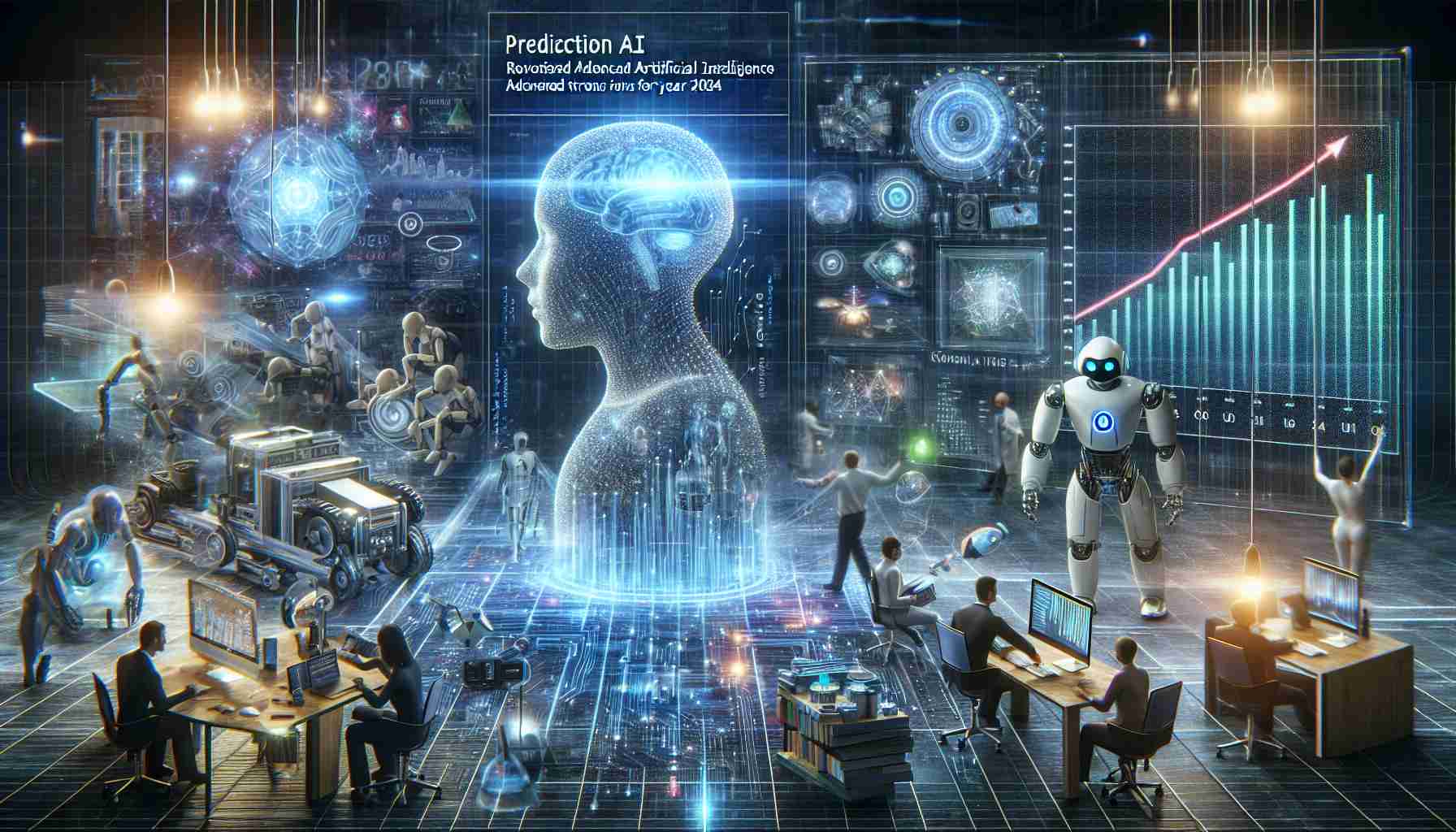While the AI industry saw tremendous growth in 2023, experts predict that 2024 will be a year of reflection and understanding the limitations of AI. Christopher Alexander, the Chief Analytics Officer for Pioneer Development Group, believes that the race for AI utility has just begun and that AI will become a permanent part of people’s lives. However, he also thinks that the grand predictions made in the past year have caused confusion about the current state of AI.
Although expectations of an AI boom similar to the tech explosion of the previous decade have not materialized, there are indications that the industry is on the right track. Phil Siegel, founder of the Center for Advanced Preparedness and Threat Response Simulation, suggests that the infrastructure pieces required for AI’s true potential are currently being developed. However, he cautions that it will take time for real products to hit the market at affordable prices.
Samuel Mangold-Lenett, a staff editor at The Federalist, points out that AI has already exceeded expectations in terms of its widespread utility. He believes that the average consumer may not be aware of the AI boom because they do not consciously interact with AI on a daily basis.
Looking at specific examples, Mangold-Lenett highlights the popularity of language learning models (LLM) such as ChatGPT in 2023. Jake Denton, a research associate at the Heritage Foundation’s Tech Policy Center, mentions the rise of chatbots but acknowledges that their capabilities and usefulness are still unclear to many consumers.
Despite the current limitations, Denton believes that revolutionary technologies often appear useless at first and will eventually become seamlessly integrated into our lives. Furthermore, he emphasizes that the foundations for AI have already been built, and it is now up to developers to create products of lasting value.
It remains to be seen whether 2024 will bring a full-fledged AI revolution or if AI will remain primarily a productivity tool. The year will be instrumental in determining whether AI has the potential to reshape various industries or if further refinement and development are needed.
FAQs on AI in 2024:
1. What do experts predict about the AI industry in 2024?
– Experts predict that 2024 will be a year of reflection and understanding the limitations of AI. While AI is expected to become a permanent part of people’s lives, the grand predictions made in the past year have caused confusion about its current state.
2. Has the AI industry experienced a boom similar to the tech explosion of the previous decade?
– No, the AI industry has not experienced a boom similar to the tech explosion of the previous decade. However, there are indications that the industry is on the right track, with infrastructure pieces required for AI’s true potential being developed.
3. How has AI exceeded expectations in terms of its utility?
– AI has exceeded expectations in terms of its widespread utility, even though the average consumer may not be aware of the AI boom because they do not consciously interact with AI on a daily basis.
4. What are some specific examples of AI utility?
– Language learning models (LLM) such as ChatGPT have gained popularity in 2023. The rise of chatbots has also been mentioned, although their capabilities and usefulness are still unclear to many consumers.
5. Are revolutionary technologies often initially considered useless?
– Yes, according to Jake Denton, revolutionary technologies often appear useless at first but eventually become seamlessly integrated into our lives. He believes that the foundations for AI have already been built, and it is now up to developers to create products of lasting value.
6. Will 2024 bring a full-fledged AI revolution?
– It remains to be seen whether 2024 will bring a full-fledged AI revolution or if AI will remain primarily a productivity tool. The year will be instrumental in determining whether AI has the potential to reshape various industries or if further refinement and development are needed.
Definitions:
– AI: Artificial Intelligence refers to the development of computer systems capable of performing tasks that typically require human intelligence, such as visual perception, speech recognition, decision-making, and language translation.
– Infrastructure: The basic physical and organizational structures and facilities needed for the operation of a society or enterprise. In the context of AI, it refers to the necessary components, technologies, and support systems that enable the development and utilization of AI.
– Chatbots: Computer programs that simulate human conversation through artificial intelligence. They are designed to interact with users and respond to their queries or provide assistance in a conversational manner.
Related Links:
– link name (Pioneer Development Group): Pioneer Development Group, the organization where Christopher Alexander, the Chief Analytics Officer, works, may provide more insights into AI developments and its impact on industries.
– link name (Center for Advanced Preparedness and Threat Response Simulation): The Center for Advanced Preparedness and Threat Response Simulation (CAPTRS), founded by Phil Siegel, can offer further information on AI’s potential and preparedness for handling threats and emergencies.
– link name (The Federalist): The Federalist, where Samuel Mangold-Lenett works as a staff editor, may have additional articles discussing AI and its impact on various aspects of society.
– link name (Heritage Foundation’s Tech Policy Center): The Heritage Foundation’s Tech Policy Center, where Jake Denton is a research associate, could provide more insights into AI policies and the future of technology.
The source of the article is from the blog coletivometranca.com.br

